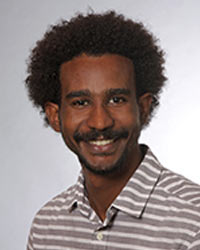
Abdelwahab Osman Mohammed
Mohamed unfortunately left us at the beginning of the year 2021.
He was a brilliant student, passionate about soccer and poetry, and with a bright future in Neuroscience. We miss him very much.
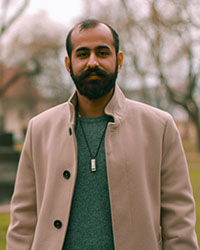
Anas Masood
Anas received his Bachelor degree in Computer Sciences from Habib University, Pakistan. He then pursued a Master in Neurosciences through the Neurasmus Scholarship, studying at Vrije University Amsterdam where he worked on Critical Dynamics and Oscillations, and Université de Bordeaux where he worked on training neural networks to improve temporal and spatial resolution of microscopy images. Currently, he is pursuing a PhD at the El-Boustani Lab, Universite de Geneve, where he is interested in explaining neural circuits of social games and their reward-value representations in the behaving brain.
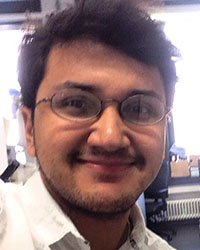
Bakhrom Muinjonov
I am a neuroscientist and neurologist by training. During my bachelor degree neuroscience and clinical neurology classes captivated my interest the most, not only the facts about how the brain works enticed me, but behind the complexity of the mechanisms involved lurked the mystery and compelling drama. I studied neuroscience within my clinical neurology, neurobiochemistry classes and took extra classes in international neuroscience courses. My fundamental area of interest is translational neuroscience of neurological disorders.
Multidisciplinary comprehensive training within Neurasmus curriculum helped me tremendously to pursue a successful research in fundamental neuroscience. Good reputation of high quality research standards and research facilities caught my eye from the beginning of my journey and I am very honored to be part of the alumni.
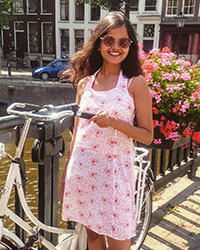
Deepshika Arasu
Deepshika Arasu (she/her) grew up in Chennai, India and she's currently pursuing her PhD at Poietis, a bioprinting start-up company in Bordeaux as a Marie Curie Early Stage Researcher. She started off her Neurasmus journey in Berlin in 2018 and moved to Amsterdam for her second year. As the COO of The MSAAW Foundation, an intersectional feminist NGO in India, she is passionate about women's and minority rights. Long-reads, cuisines from around the world and talking about everything under the sun are some of her favourite things.
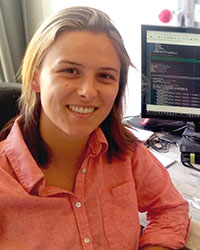
Eduarda Centena
I’m a neurasmate from the 2018 batch (Bordeaux-Amsterdam). I’m a Pythonist and an open science enthusiast. I currently work as a research assistant for the VUmc (Amsterdam) and I’m doing my PhD in Bordeaux in Dr. Leblois’ team. I study songbirds! Pretty cool, right?
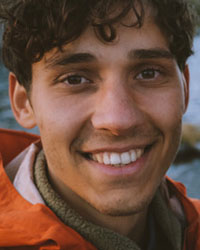
Emil Uffelmann
My academic journey is not a straight one. It began with a Bachelor’s degree in Psychology. But wanting to dive deeper than mere behaviour, I switched to neuroscience to study the underlying biology of our mind. During my first neurasmus semester I took a class in statistical genetics, which I enjoyed very much. I consider myself extremely lucky that the teaching Professor of that course offered me a PhD in Genetics very early on. And so I switched fields a third time. You may call me an opportunist, but I think it’s incredibly hard to know if a field or profession suits you before really getting into it. And so I make an effort to be honest to myself about what I like and do not like and be open to alternatives. It’s actually a little exciting to think that, right now, I have no idea where I will end up in a few years. It doesn’t make me feel lost, I feel privileged to have so many choices. And neurasmus really opened a lot of doors for me.
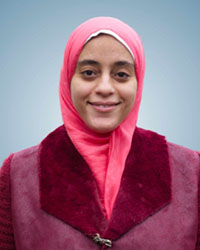
Heba Abd El Rasol
Though I have always been interested in molecular biology and pharmacology at any level, I developed a strong fascination for cognitive and molecular neuroscience, especially in the context of studying neurodegenerative diseases. I graduated from the Pharmacy school, worked as a clinical pharmacist in Egypt then I found my way to Neurasmus. I got to explore Neuroscience through two prominent research centres in Göttingen and Bordeaux where I could conduct a cutting-edge research and help understanding disease mechanisms. I really appreciate the great opportunity that Neurasmus gave me to channel my passions and meet Neurasmates from all over the world. Taking my next career steps, I have started my PhD in Göttingen focusing on Parkinson’s disease using patient-derived induced pluripotent stem cells (hiPSCs).
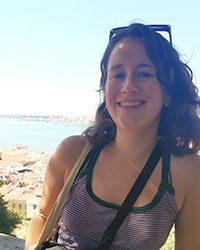
Helen Mcmillan
After finishing my Bachelor's in Ireland, I joined the Neurasmus programme in Bordeaux.
I met friends from all over the world who still are a massive part of my life.
It was not always the easiest experience settling in new cities but I am very glad I did it.
I moved to Berlin for my 2nd year and I'm still here now a year on. I'm still figuring out my career but very happy where I am
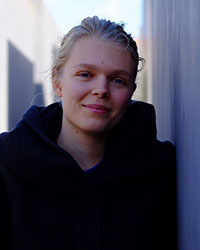
Irina Sheer
Swiss based PhD working on increasing the understanding of motor adaptation and proprioception in the cerebellum. Self motivated, curious and enthusiastic. Goal in life? Finding the blanks in neuroscience and investigating this. Building on a background in Life Sciences and Psychology, Neurasmus gave me the opportunity to explore Neuroscience, increase my scientific and personal skills and gave me an international network of friends and colleagues.
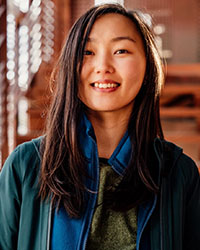
Khulganaa Buyannemekh
Ulaanbaatar to Pennsylvania to Bordeaux to Berlin to Marseille. I guess I have followed the footsteps of my ancestors and become a modern-day nomad. Neurasmus was an essential part of that experience. 2 years of an absolute life-enriching ride that brought along wonderful friendships and growth, both academic and personal. And for that I am grateful. And now my journey continues as I work towards a PhD at Aix-Marseille University as part of the CENTURI program.
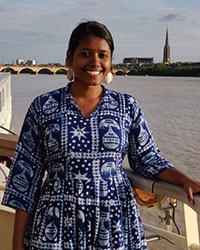
NANDINI PERIYAPALAYAM SEKAR
I am Nandini from Chennai, India and I was a part of Track 4 (Year 1 in Berlin and Year 2 in Amsterdam) of the 2018-2020 intake. I am primarily interested in transcranial magnetic stimulation (TMS) and its applications in treating psychiatric disorders and disorders of consciousness. I worked on understanding gamma oscillations in my first lab rotation and on TMS in motor mapping in pre-surgical brain tumor patients in my second rotation in Berlin. For my final year thesis in Amsterdam, I worked on electroencephalographic (EEG) changes associated with pre-frontal repetitive TMS in psychiatric patients. In my free time I paint, sing Indian Carnatic Classical music, and play an Indian classical instrument called the veena. My two years with Neurasmus has been like a dream. I got to study what I love best (the human brain), had hands-on experiences working with patients in the university-associated hospital, sampled the research scenario in two different European countries, and above all, met amazing teachers, friends and coordinators who have become family for life. The entire Neurasmus program as well as the prestigious scholarship has been a great opportunity for me and I couldn't have asked for a better launch pad into the amazing world of neuroscience research.
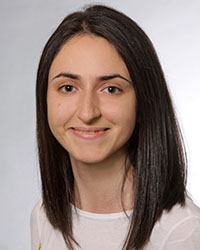
Nare Karagulyan
After obtaining my bachelor’s degree in biophysics in Armenia I started my journey with Neurasmus in Göttingen. I then moved to Bordeaux for my second year and was finally back to Göttingen to work on my Master’s thesis. Neurasmus gave me the opportunity to get familiar with different fields of Neuroscience and realize that I want to find the answers to the fundamental questions in cellular Neuroscience. I am now doing my PhD in Göttingen, in the institute for Auditory Neuroscience.
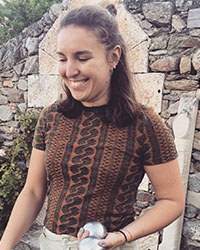
Sara Simula
Eclectic, passionate about science and culture in general, always late (consistent with my Italian nature..) and, probably, a bit confused on her role in the world. Other than that, I have a bachelor's in Biomedial engineering from Politecnico of Milan and I have graduated from Neurasmus in 2020 (Berlin-Bordeaux-Paris).
Currently, I am a PhD student in Marseille (FR), within the Institut de Neurosciences des Systemes. I work in the hospital's epilepsy department and try not to electrocute my patients while studying transcranial electrical stimulation mechanisms via intracranial recordings. Sometimes, I also work for Philo-CINAPs (Philosophy of Clinics in Neuroscience and Psychiatry).
I love photography, food, theatre, climbing and I will soon be the next petanque world champion.
For italian-speaking people only (sorry): I am a mentor in the Futura project (https://iamfutura.com/), where you can freely organize a zoom with me if you need any advice. Always happy to help non-Italians too via email at sara.simula10@gmail.com
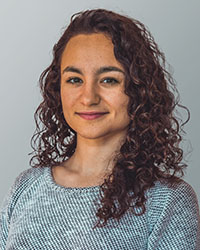
Sarah Duverdin
Being the first French student accepted in Neurasmus was for me an honour. I entered the Neurasmus family in 2018 to start in the famous cloudy and rainy city of Amsterdam. There, after working on several animal models during my Bachelor and first year of Master in France, I realised that I wanted to focus on studying human. I started learning patch-clamp electrophysiology on rodent and human brain tissue. I then refined this skill in Berlin, where I did my Master's thesis. I am now starting a collaboration PhD between those two laboratories in Berlin and Amsterdam. The Neurasmus Master's has allowed me to develop my academic career tremendously and has given me the best opportunities to advance within Neurosciences.
Beyond being a neuroscientist, I am a very enthusiastic, introspective, and social person. You can find me doing my morning yoga and meditation routine in nature as much as biking around the city, dancing with some friends or doing martial art at night. As an extrovert, the social environment of the Neurasmus Master's was and still is extremely stimulating and empowering. I am happy that I had the chance to meet such wonderful humans with whom to share thoughts, struggles, food, and love. The Neurasmus journey is a once-in-a-lifetime experience which was for me a dream that I accomplished, and I can only but recommend this program to any passionate human who wants to learn about the brain and to develop as a human being.
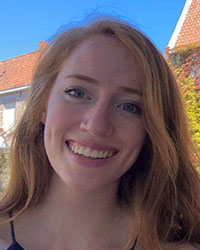
Sarah Roche
After completing a bachelor's degree in biology with minors in chemistry and neuroscience, I was accepted into the Neurasmus program. I spent my first year in Bordeaux studying the influence of gut-dysbiosis on nicotine addiction. I then moved to Amsterdam where I wrote my thesis on the role of the infralimbic cortex during motivational conflict resolution using fiber photometry. These days, I've taken a step back from research to pursue my passion for science education. I am currently a Junior Lecturer of Biomedical Sciences at Virje Universiteit in Amsterdam, where I teach and mentor first year bachelor students. In addition to my role as a teacher, I am also pursuing a personal project to improve mental health resources and access to those resources for students at the VU, with particular emphasis on how best to provide care for international students. In my free time I'm a passionate storyteller and cyclist, mediocre artist and enjoy reading and learning about death and grieving across various cultures.
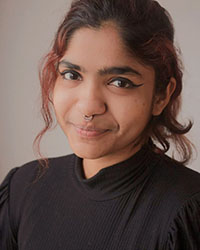
Sharmista Muralidharan
Ever since I was introduced to the gateway drugs for neuroscience - Oliver Sacks and David Nutt, I've been hooked on the brain and the mysteries of how it works. Since then I have developed a passion for animal behaviour and psychedelic research within neuroscience. Outside, I love food, music, all things art and anything related to the sea. NEURASMUS provided me with the perfect opportunity to combine my three favourite things: science, travel and meeting incredible people from different cultures. I'll forever remember everything about these past two years and always recommend this life and mind-altering program to everyone!
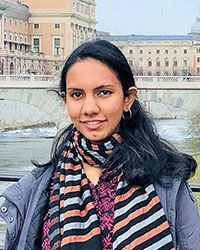
Shobana Shankar
During my last year of undergraduate studies in Biotechnology, I took an elective that exposed me to the wonderful world of Neuroscience. My friend who took the course with me told me about the Neurasmus master's program, and I am thankful to have experienced the Neurasmus journey with her. I started my first year in Amsterdam and I felt that the courses, although challenging, prepared me well by giving an in-depth overview of different research areas in Neuroscience. Amsterdam and Bordeaux offered an opportunity to explore a diverse range of research fields for internships. What I learnt during both these internships has shaped my interest to study gene expression regulation during brain development. In addition, Neurasmus provided an opportunity to explore different cultures that have challenged me to come out of my comfort zone to understand myself better and strive for improvement every day.
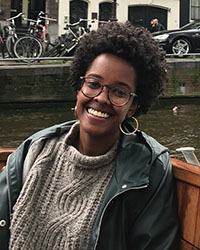
Sumiya Abdirashid
I'm first and foremost a lover of learning. Lately, I've found that my favourite learning occurs outside of the classroom and the lab. It's the learning that comes from paying attention to your interactions, your surroundings, and yourself. I started out in Neuroscience because I loved that it united so many disciplines and perspectives with the goal of unravelling the mysteries of the brain. Neurasmus was the perfect opportunity to learn Neuroscience and also to learn so much about myself, others, and integrating into new environments. It was challenging but also one of the most formative and rewarding endeavours I've ever embarked on.
Where you can find me now: doing my PhD in Computational Neuroscience at the Spinoza Centre for Neuroimaging in Amsterdam. I'm investigating how visual spatial attention alters visual processing using fMRI and computational modeling. When I'm not in the lab, I love bird-watching, being on boats or near water, and spending time in the sun with friends.
You want a program overview ?

